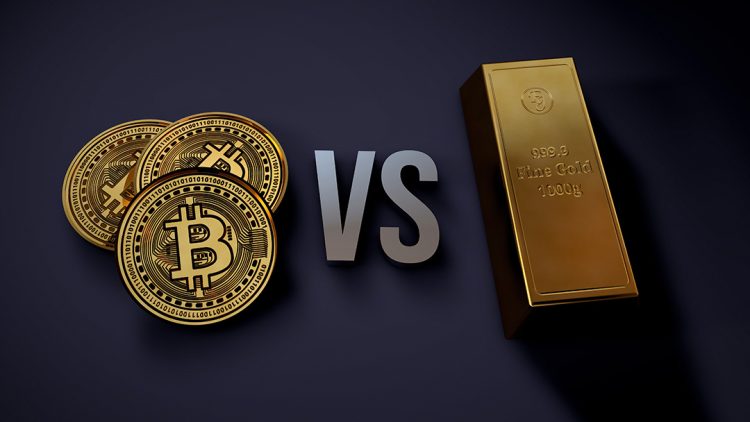The age-old debate of whether to invest in Bitcoin or gold continues to captivate the financial world. Each asset class has its fervent proponents, with passionate arguments on both sides. In this article, we will dissect the key aspects of both Bitcoin vs gold as investment vehicles to help you make an informed choice.
Bitcoin: The Digital Gold
Advantages:
Decentralization and Accessibility
Bitcoin operates on a decentralized ledger called the blockchain, which means it isn’t controlled by any central authority. This decentralization opens up opportunities for individuals to invest and transact without intermediaries, making it accessible to a global audience.
Scarcity and Transparency
Bitcoin’s supply is capped at 21 million coins, a feature that mirrors the scarcity of precious metals like gold. This limited supply is programmed into the blockchain, ensuring transparency and reducing the risk of inflation.
Portability and Divisibility
Bitcoin is highly portable and divisible, allowing you to carry or transfer significant wealth with relative ease. This divisibility makes it accessible to investors with varying capital.
Risks:
Volatility
Bitcoin’s price has exhibited extreme volatility, with rapid price fluctuations. While this volatility presents trading opportunities, it can also lead to substantial losses for investors who fail to time the market correctly.
Regulatory Uncertainty
The regulatory environment surrounding Bitcoin varies from country to country and can change rapidly. This uncertainty can impact its use and value.
Security Concerns
As a digital asset, Bitcoin is susceptible to hacking and cyberattacks. Investors must take precautions to secure their holdings effectively.
Gold: The Time-Tested Store of Value
Advantages:
Historical Store of Value
Gold has served as a store of value for centuries, preserving wealth through various economic crises. Its stability and universal acceptance make it a trusted asset for wealth preservation.
Physical Tangibility
Gold is a tangible asset, and many investors value the security of owning a physical commodity. You can hold it, store it, or transport it at your discretion.
Diversification
Gold can serve as a diversification tool in your investment portfolio. It often exhibits a low correlation with traditional assets like stocks and bonds, which can provide a hedge against market volatility.
Risks:
Lack of Portability
Gold’s physical nature can be a drawback, as it can be challenging to transport or divide for smaller transactions. This lack of portability limits its use in a globalized, digital economy.
Storage Costs
Storing physical gold can be costly, particularly for larger holdings. Security concerns and storage fees can erode returns over time.
Market Manipulation
Gold prices can be subject to market manipulation, affecting its value. Instances of price suppression and rigging have been reported.
Bitcoin vs. Gold Conclusion
The choice between Bitcoin and gold as an investment ultimately depends on your risk tolerance, investment objectives, and beliefs about the future of finance.
- Bitcoin is a digital, decentralized asset with the potential for significant returns but carries higher volatility and regulatory uncertainty. It’s favored by those who believe in the future of digital finance and are willing to embrace the associated risks.
- Gold is a time-tested store of value, respected for its stability and low correlation with traditional assets. It’s favored by conservative investors looking to preserve wealth in uncertain times.
In practice, many investors choose to have a diversified portfolio that includes both assets. This approach can provide a balanced strategy, benefiting from the strengths of each asset class while mitigating their weaknesses.
Remember that all investments carry inherent risks, and it’s essential to conduct thorough research, seek professional advice, and align your investments with your financial goals and risk tolerance.

Leave a Reply